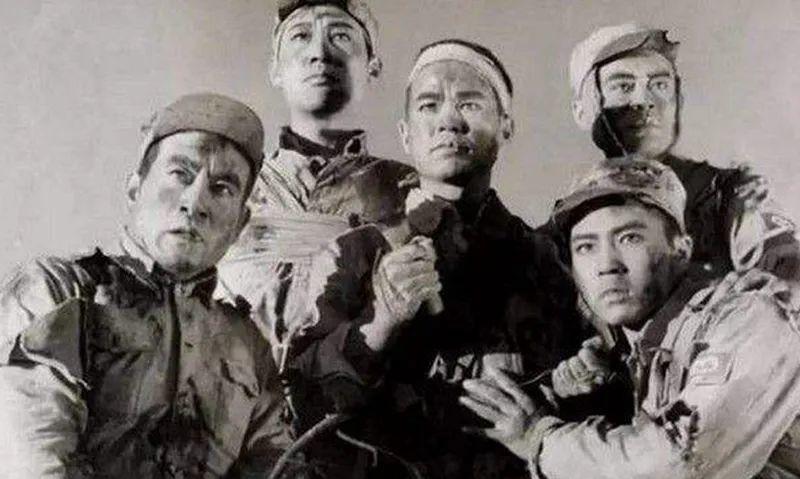The Five Heroes of Wolf's Tooth Mountain is a well-known group of anti-Japanese heroes in my country, so do you know how the Five Heroes of Wolf's Tooth Mountain were born? This incident began in 1941, when it happened to be the period of the War of Resistance Against Japan, when the Japanese aggressors carried out a large-scale "sweep" of the base areas in North China, and in this "sweep," the first sub-district of the Jin-Cha-Ji Military Region of the Eighth Route Army was in danger of being encircled.

When Liu Fushan, commander of the Seventh Company, brought the cover task to the company, Ma Baoyu, the squad leader of the sixth squad, was the first to request to join the battle, and the task given to the sixth squad by his superiors at that time was: "You must think of all means to drag the enemy to Langya Mountain, and before 12 o'clock tomorrow noon, the enemy will not be allowed to cross the chessboard." Before the transfer, Qiu Wei, the commander of the first regiment, specially came to the Seventh Company and encouraged the soldiers of the Seventh Company and the Sixth Squad: "The Wolf Tooth Mountain has been handed over to you."
The story of the "Five Heroes of Wolf Tooth Mountain" is very familiar to everyone, and today we will talk about the story of their leader, that is, Qiu Wei. Born in 1913 in Liuyang, Hunan, Qiu Wei joined the Red Army in 1929 at the age of 16, and later joined the Red Third Army, participated in the anti-"encirclement and suppression" battle in the central base area, and participated in the Long March after the failure of the fifth anti-"encirclement and suppression" campaign. By the time the Red Army arrived in northern Shaanxi, Qiu Wei had been promoted to deputy regimental commander of the 13th Regiment of the 1st Division of the Red 1st Army.
After the outbreak of the War of Resistance Against Japan, Qiu Wei's unit was reorganized into the Eighth Route Army, and he also entered the 115th Division of the Eighth Route Army, and soon after, the 115th Division created the Jin-Cha-Ji Base Area, and Qiu Wei entered the Jin-Cha-Ji Military Region and served as the commander of the 3rd Regiment of the 1st Military Subdistrict, and soon after, he was appointed as the commander of the 1st Regiment of the 1st Military Subdistrict. It is worth mentioning that the 1st Regiment is a long-established unit, formerly known as the 1st Regiment of the 1st Division of the Red 1st Army, that is, the unit that forcibly crossed the Dadu River in that year, and made great achievements in the period of the agrarian revolution.
During the War of Resistance Against Japanese Aggression, Qiu Wei served as the commander of this unit, and it was also during his tenure as the commander of the 1st Regiment that the Japanese invaders carried out a "great sweep" in North China, and the 1st Sub-district of the Jin-Cha-Ji Military Region was facing a situation of being surrounded and had to be transferred in time, while the 7th Company of the 1st Regiment undertook the task of covering the transfer of the large troops, and finally this task fell to the five soldiers of the 7th Company and the Sixth Squad, who were later known as the Five Heroes of Wolf's Tooth Mountain.
As the commander of the 1st Regiment, before the large troops were transferred, Qiu Wei deliberately went to the garrison of the Seventh Company to encourage the five soldiers and the Seventh Company, and also issued combat instructions to the Seventh Company: "The 7th Company serves as a rear guard, covering the transfer of the large troops and the masses, and finally leaving a squad to drag the enemy", and the last squad left is the famous "Five Heroes of Wolf's Tooth Mountain".
After the founding of New China, Qiu Wei was appointed deputy chief of staff of the 20th Corps of the Volunteer Army, and led his troops to participate in the War to Resist US Aggression and Aid Korea. During his time in Korea, Li Xiang, acting commander of the 67th Army, unfortunately died of illness, after which Qiu Wei was appointed commander of the 67th Army and continued to command the 67th Army to participate in the War to Resist US Aggression and Aid Korea. In the famous Battle of Jincheng, the 67th Army performed well under the leadership of Qiu Wei, and the victory of this battle also promoted the signing of the Korean Armistice Agreement.
After returning from North Korea, the 42-year-old Qiu Wei was awarded the rank of major general at the 1955 ceremony, becoming the founding major general. At that time, Qiu Wei was in the stage of youth and strength, and he had more opportunities to serve the country, but unfortunately, in 1957, qiu Wei, who was 44 years old at the time, was unfortunately killed while fishing on the seashore.
It is worth mentioning that at that time, as a founding major general, Qiu Wei's death was suspected by many people to be the work of secret agents, and a public security officer personally went to the seaside reef where Qiu Wei was killed to investigate the case in order to find out about this matter. Unexpectedly, the police officer was subsequently swept into the sea by a wave and killed, and Qiu Wei's case was also settled and ended.